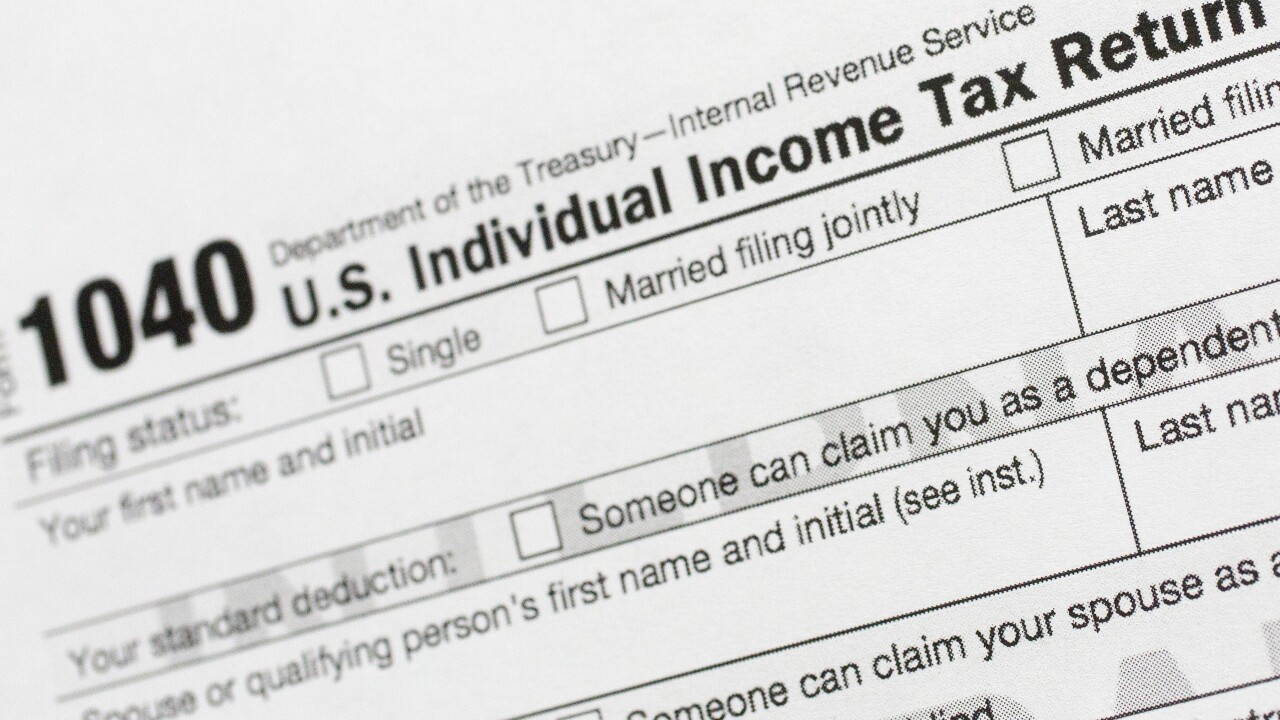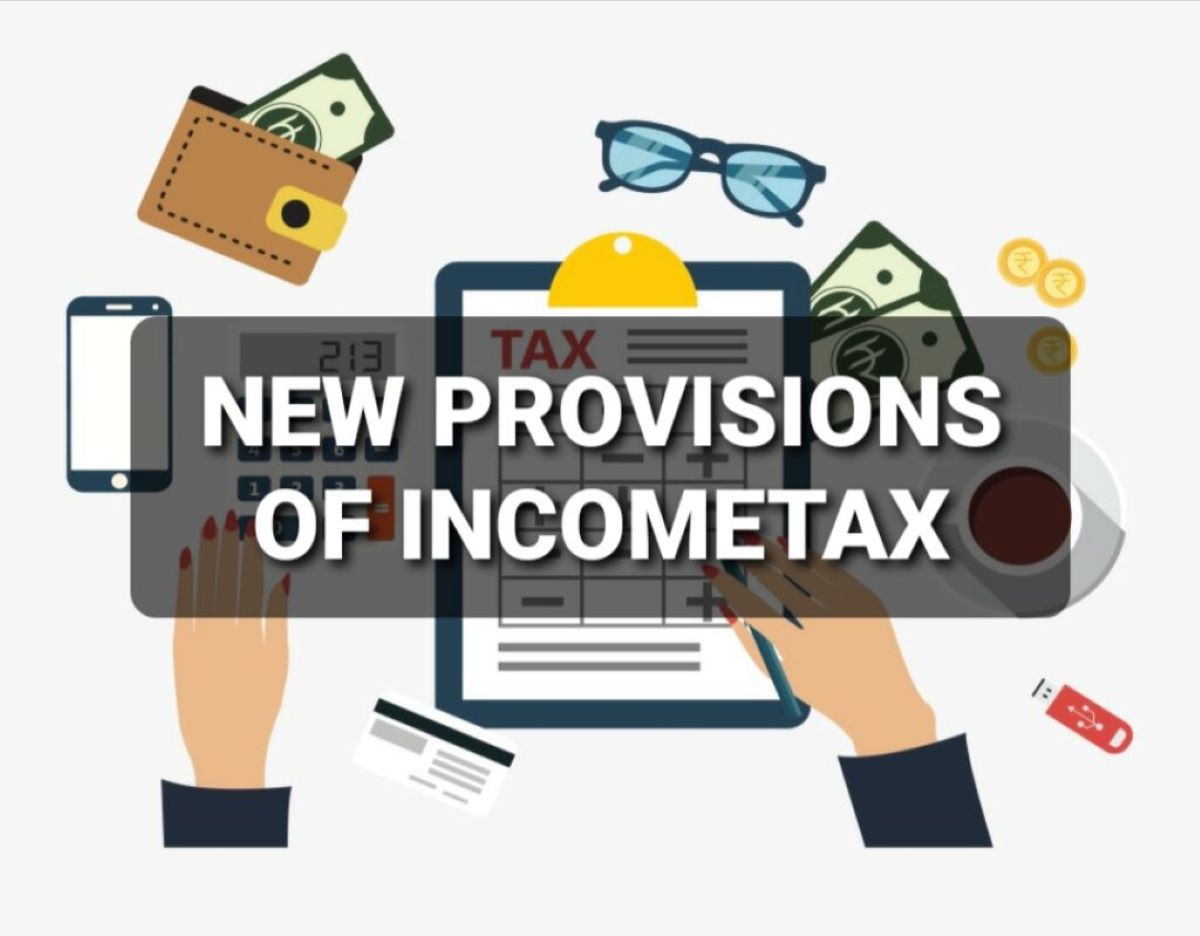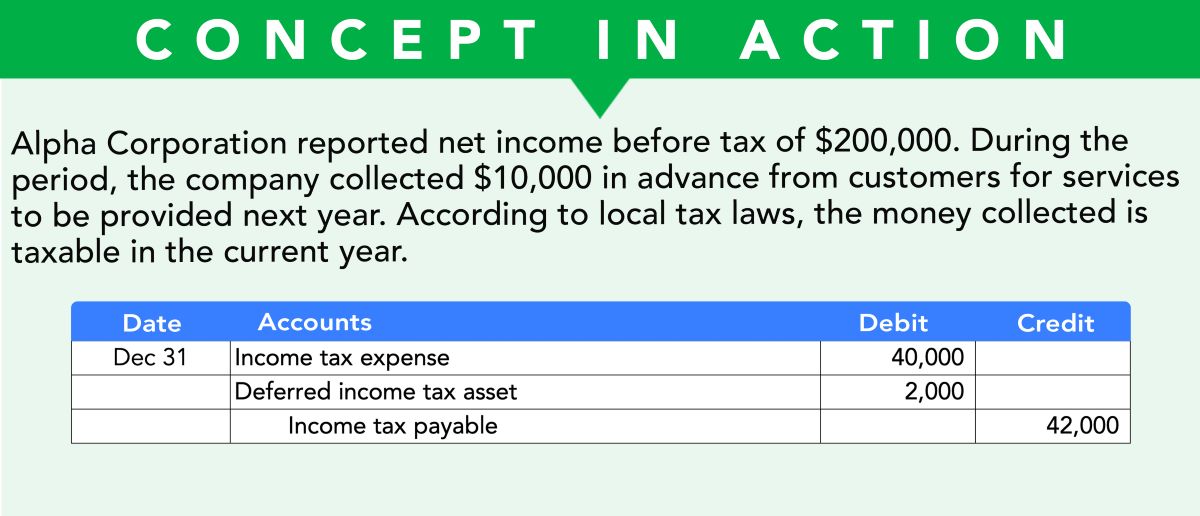

Finance
What Is The Income Tax In Wisconsin
Published: November 2, 2023
Learn about the income tax regulations in Wisconsin and how it affects your finances. Understand the key aspects of taxation in Wisconsin and plan your finances efficiently.
(Many of the links in this article redirect to a specific reviewed product. Your purchase of these products through affiliate links helps to generate commission for LiveWell, at no extra cost. Learn more)
Table of Contents
Introduction
Welcome to Wisconsin, the “Badger State,” known for its stunning natural beauty, vibrant cities, and thriving economy. As a resident or potential resident, it’s essential to have a clear understanding of the state’s income tax system. Whether you’re a new employee, a business owner, or simply curious about the tax landscape in Wisconsin, this article will provide you with a comprehensive overview of the income tax in the state.
The income tax in Wisconsin is a crucial source of revenue for the state government, funding important services such as education, healthcare, infrastructure, and public safety. Understanding how the tax system works can help you make informed financial decisions and ensure compliance with your tax obligations.
In this article, we will delve into various aspects of the Wisconsin income tax, including tax rates, deductions, filing requirements, and special considerations. By the end, you will have a clear understanding of how the income tax works in Wisconsin and what it means for your personal or business finances.
Before we dive into the specifics, it’s important to note that tax laws and regulations are subject to change. While the information in this article is accurate at the time of writing, it’s always a good idea to consult with a tax professional or refer to the official Wisconsin Department of Revenue (DOR) website for the most up-to-date information.
Overview of Income Tax
The income tax is a progressive tax system imposed by the federal and state governments on individuals, businesses, and other entities. It is based on the income earned during a specific period, typically a calendar year. Income includes wages, salaries, self-employment earnings, rental income, dividends, interest, and other sources of revenue.
In Wisconsin, as in most states, the income tax is imposed separately from the federal income tax. This means that individuals and businesses are required to file separate tax returns for both federal and state purposes.
The Wisconsin income tax system follows a progressive structure, meaning that the tax rate increases as income increases. This ensures that individuals with higher incomes shoulder a greater share of the tax burden.
It’s important to note that Wisconsin does not have a local income tax. However, certain cities, such as Milwaukee, impose a separate local sales tax, which may affect your overall tax liability if you reside or conduct business in those areas.
One of the key factors that determine the amount of income tax you owe is your filing status. Wisconsin recognizes the following filing statuses:
- Single
- Married filing jointly
- Married filing separately
- Head of household
Each filing status has its own tax rates and deductions, so it’s essential to determine the most suitable filing status based on your circumstances.
Wisconsin also allows taxpayers to claim various credits and deductions to reduce their tax liability. We will explore these in more detail later in the article.
Now that we have a general understanding of the income tax in Wisconsin, let’s dive into the specific rates and brackets that apply to different levels of income.
Wisconsin Income Tax Rates
Wisconsin’s income tax rates are progressive, meaning that different income levels are taxed at different rates. As of the time of writing, the tax rates for individuals range from 3.54% to 7.65%. It’s important to note that these rates are subject to change, so it’s always a good idea to consult the Wisconsin Department of Revenue for the most up-to-date information.
Here is an overview of the tax rates for different income brackets in Wisconsin:
- For individuals with taxable income up to $12,420, the tax rate is 3.54%.
- For individuals with taxable income between $12,421 and $24,840, the tax rate is 4.65%.
- For individuals with taxable income between $24,841 and $263,480, the tax rate is 6.27%.
- For individuals with taxable income above $263,480, the tax rate is 7.65%.
It’s important to note that these tax rates apply to taxable income, which is the income remaining after applying deductions, exemptions, and credits. We will discuss these in more detail in the upcoming sections.
For married couples filing jointly, the income tax rates are the same as those for single individuals. However, married couples filing separately have slightly different tax rates.
It’s important to accurately calculate your taxable income and apply the appropriate tax rate to determine your tax liability. Wisconsin provides tax brackets and tax tables to assist taxpayers in this process.
Now that we have an understanding of the tax rates in Wisconsin, let’s explore the standard deduction and exemptions, which can further reduce your taxable income.
Standard Deduction and Exemptions
When filing your Wisconsin income tax return, you have the option to take either the standard deduction or itemize your deductions. The standard deduction is a predetermined amount that reduces your taxable income without the need for documentation or itemization.
As of the time of writing, the standard deduction amounts for Wisconsin residents are as follows:
- $12,630 for single individuals and married individuals filing separately
- $25,260 for married couples filing jointly
- $18,990 for heads of household
If your eligible deductions exceed the standard deduction amount, it may be advantageous to itemize your deductions instead. Common itemized deductions include medical expenses, mortgage interest, property taxes, and charitable contributions. However, it’s essential to review the specific requirements and limitations for each deduction to ensure you follow the proper guidelines.
In addition to the standard deduction, Wisconsin allows for certain exemptions, which further reduce your taxable income. Exemptions are deductions you can claim for yourself, your spouse, and each dependent you have. The exemption amounts for Wisconsin residents are as follows:
- $2,000 per individual exemption
It’s important to note that exemptions are subject to phase-out for higher-income individuals. The phase-out begins when your adjusted gross income (AGI) exceeds certain thresholds.
It’s crucial to carefully consider whether to take the standard deduction or itemize deductions, as it can significantly impact your taxable income and overall tax liability. Consulting with a tax professional can help you determine the best approach based on your individual circumstances.
Now that we have covered the standard deduction and exemptions, let’s look at how taxable income is determined and the corresponding tax brackets in Wisconsin.
Taxable Income and Tax Brackets
In Wisconsin, taxable income is calculated by subtracting deductions, exemptions, and credits from your total income. This resulting amount is then subject to the applicable tax rates based on your income bracket.
To determine your taxable income, start with your total income, which includes wages, salaries, self-employment income, rental income, interest, dividends, and other sources of revenue. Next, subtract any eligible deductions, such as the standard deduction or itemized deductions, and exemptions.
Once you have determined your taxable income, you can refer to the tax brackets to find the applicable tax rate. Wisconsin has four tax brackets that correspond to different income levels, as mentioned in the previous section.
It’s important to note that Wisconsin does not tax Social Security benefits, retirement income from qualified plans, or certain other types of income. However, some income may be subject to federal taxes even if it is exempt from Wisconsin taxes.
For example, let’s say you are a single individual with a taxable income of $30,000. Based on the current tax rates, the first $12,420 of your income would be taxed at a rate of 3.54%, resulting in a tax liability of $438.68. The remaining $17,580 would be taxed at the next tax rate of 4.65%, resulting in an additional tax liability of $817.77. Therefore, your total tax liability would be $1,256.45.
It’s important to accurately calculate your taxable income and apply the appropriate tax rates to determine your tax liability. Using tax software or consulting with a tax professional can help ensure accuracy and optimize your tax strategy.
Now that we understand how taxable income and tax brackets work in Wisconsin, let’s explore some of the credits and deductions available that can further reduce your tax liability.
Credits and Deductions
Wisconsin offers various credits and deductions that can help lower your overall tax liability. These credits and deductions are designed to incentivize behaviors such as homeownership, education, energy efficiency, and charitable giving. Let’s explore some of the key credits and deductions available in Wisconsin:
Credits:
- The Child and Dependent Care Credit allows eligible taxpayers who have incurred expenses for child or dependent care to claim a percentage of those expenses as a credit.
- The Earned Income Credit (EIC) is a refundable credit designed to assist low to moderate-income individuals and families. The credit amount is based on factors such as income, filing status, and the number of qualifying children.
- The Homestead Credit is available to eligible individuals who own or rent their primary residence in Wisconsin. It provides property tax relief based on income and property tax paid.
- The Education Credits help offset the cost of qualified higher education expenses. The two main education credits available are the American Opportunity Credit and the Lifetime Learning Credit.
- The Working Families Tax Credit is aimed at providing additional support to working families. Eligibility and credit amount depend on income, filing status, and the number of qualifying children.
Deductions:
- The Mortgage Interest Deduction allows homeowners to deduct the interest paid on their mortgage, reducing their taxable income.
- The Student Loan Interest Deduction enables individuals to deduct the interest paid on qualifying student loans, reducing their taxable income.
- The Charitable Contribution Deduction allows individuals who make qualifying charitable contributions to deduct the amount donated, reducing their taxable income.
- The Medical Expense Deduction allows individuals to deduct qualifying medical expenses that exceed a certain threshold, reducing their taxable income.
- The Business Expense Deduction allows self-employed individuals to deduct qualifying business expenses, reducing their taxable income.
These are just a few examples of the credits and deductions available in Wisconsin. It’s important to carefully review the eligibility requirements and limitations for each credit and deduction to ensure you take full advantage of the tax benefits available to you.
Now that we have explored the various credits and deductions, let’s discuss the filing requirements for Wisconsin income tax returns.
Filing Requirements
Understanding the filing requirements for Wisconsin income tax returns is crucial to ensure compliance with state tax laws. The filing requirements depend on various factors, including filing status, income level, and age. Let’s take a look at the filing requirements for Wisconsin residents:
- Single individuals: Individuals with a filing status of single must file a Wisconsin income tax return if their gross income exceeds $14,000.
- Married individuals filing jointly: Married couples filing jointly must file a Wisconsin income tax return if their combined gross income exceeds $28,000.
- Married individuals filing separately: If married individuals choose to file separately, the filing requirement is triggered if their gross income exceeds $14,000.
- Head of household: Taxpayers filing as head of household must file a Wisconsin income tax return if their gross income exceeds $17,000.
It’s important to note that these income thresholds are subject to change, so it’s always a good idea to consult the Wisconsin Department of Revenue or a tax professional for the most up-to-date information.
Even if your income falls below the filing requirement thresholds, it may still be beneficial to file a tax return. Filing a return allows you to claim any applicable credits or deductions and potentially receive a tax refund.
Additionally, if you are a nonresident of Wisconsin but earned income from Wisconsin sources, you may be required to file a Wisconsin income tax return, regardless of your income level.
Wisconsin follows the federal tax calendar for determining the deadline to file returns. Typically, the deadline to file and pay any tax due falls on April 15th of each year. However, if April 15th falls on a weekend or holiday, the deadline may be extended.
Filing your Wisconsin income tax return can be done electronically or by mail. The Wisconsin Department of Revenue provides online resources and instructions for both methods.
Now that we have discussed the filing requirements let’s look at some special considerations for Wisconsin income tax.
Special Considerations for Wisconsin Income Tax
While the basic structure of Wisconsin’s income tax system follows federal guidelines, there are a few special considerations to keep in mind when it comes to filing your Wisconsin income tax return. Let’s explore these special considerations:
Reciprocity Agreements: Wisconsin has reciprocity agreements with certain neighboring states, including Illinois, Indiana, Kentucky, Michigan, and Minnesota. If you live in Wisconsin but work in one of these states, you may be exempt from paying Wisconsin income tax on the income earned in that state. Similarly, if you live in one of these states but work in Wisconsin, you may be exempt from paying income tax in Wisconsin.
Estimated Quarterly Payments: If you are self-employed or receive income that is not subject to withholding, such as rental income or investment earnings, you may be required to make estimated quarterly tax payments to cover your tax liability throughout the year. Failure to make these estimated payments may result in penalties and interest.
Tuition and College Savings: Wisconsin offers various tax benefits related to higher education expenses. These include the Wisconsin College Tuition Deduction, which allows individuals to deduct qualified higher education expenses, and the Wisconsin College Savings Program, which provides tax advantages for contributions made to a qualified college savings account.
Retirement Income: Wisconsin offers favorable treatment of retirement income. Most retirement income, such as Social Security benefits, military retirement pay, and pensions from a qualified retirement plan, is not taxed by the state. However, some forms of retirement income, such as distributions from IRAs and 401(k) plans, may be subject to Wisconsin income tax.
Alternative Minimum Tax (AMT): Wisconsin does not have a separate AMT like the federal government. Therefore, taxpayers do not need to calculate or pay any alternative minimum tax in the state.
It’s important to be aware of these special considerations and take advantage of any applicable tax benefits or exemptions available to you. Consulting with a tax professional can help ensure you maximize your tax savings and remain in compliance with Wisconsin tax laws.
As with any tax-related matter, it’s essential to stay informed about current tax laws and regulations. The Wisconsin Department of Revenue is an excellent resource for up-to-date information and guidance on Wisconsin income tax.
Now that we have covered the special considerations, let’s conclude our exploration of the Wisconsin income tax system.
Conclusion
Understanding the income tax system in Wisconsin is essential for residents and businesses to navigate their tax obligations effectively. Throughout this article, we have explored the key aspects of Wisconsin’s income tax, including tax rates, deductions, filing requirements, and special considerations.
Wisconsin’s income tax system follows a progressive structure, with tax rates ranging from 3.54% to 7.65%. Taxable income is determined by subtracting deductions, exemptions, and credits from total income. Wisconsin offers a standard deduction and various exemptions to reduce taxable income further.
Wisconsin provides a range of credits and deductions to help taxpayers lower their overall tax liability. These include credits for child and dependent care, earned income, and education expenses, as well as deductions for mortgage interest, student loan interest, and charitable contributions.
Filing requirements in Wisconsin are based on factors such as filing status, income level, and age. It’s important to determine whether you meet the criteria for filing a Wisconsin income tax return and to file by the deadline established by the state.
Additionally, there are special considerations to keep in mind, such as reciprocity agreements with neighboring states, estimated quarterly payments for self-employed individuals, tax advantages for higher education expenses, and favorable treatment of retirement income.
As tax laws and regulations change over time, it’s crucial to stay informed and consult with a tax professional or refer to the Wisconsin Department of Revenue for the most up-to-date information.
By understanding the intricacies of the Wisconsin income tax system, you can make informed financial decisions, optimize your tax strategy, and fulfill your tax obligations with confidence.
Remember, taxation is a complex subject, and this article provides a general overview of the Wisconsin income tax system. For specific guidance regarding your individual circumstances, it’s always advisable to consult with a qualified tax professional or refer to official tax resources.














